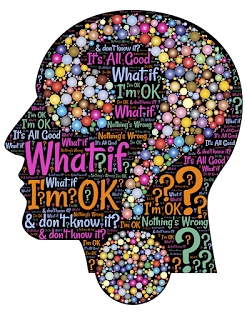 |
| What you need to know about ratings and therapy |
Ratings are
part of business but they’re a minefield for mental health services
Ratings are
everywhere. In a taxi, at a restaurant, if you buy anything online. Ratings are
important for deciding if we buy goods or services, and a recent experience
prompted me to consider how they affect mental health practitioners.
Frankly, because of the nature of the industry, ratings are generally misleading and sometimes dangerous. Here’s
why.
Privacy
and Ethics
We’re
getting better about talking things out but for many, mental health issues aretaboo.
In Malaysia,
being known as a person who is depressed, anxious or seeking help for a mental
health issue can affect your livelihood. You can be passed over for promotion
or good jobs because bosses decide you can’t cope.
If you’re
young, it can affect your relationships. It’s not unknown for families to
refuse an engagement or to insist a relationship is ended because they’ve
discovered someone is in therapy.
It’s not
fair but it’s how things are. Therefore, decent mental health practitioners do
their utmost to ensure privacy. Me, I do my own paperwork. I’m very keen on
keeping things super private.
As for my
peers, I know they worry about this too. They fire secretaries who gossip and
they make sure that their paperwork can’t be accessed by random nosy staff.
It also
means that we are very careful when we list our businesses. It’s fine to put
contacts information but we never invite ratings. This is because ratings
automatically identify clients. It outs them.
Even if
there is an anonymous rating option, the system remembers email. And many
systems gather information and share or sell it.
 |
Your data is worth money!
|
Sounds farfetched?
I’m afraid this happens all the time. Mental health sites do it, hospitals do it, and online services lose it on a regular basis even in rich countries.
Anyone who uses a business will have
their details scraped and sold. The people
who own and design the system do so for money; they don’t care what their end
users’ ethics are.
So a happy client
thinks they’re writing a nice anonymous note but six months later the PR
department or some drug company is texting or phoning with special offers.
As we know
this, careful mental health practitioners encourage clients not to leave
reviews or ratings. This is one issue but there are more.
Mental Health
Service is Tricky
Psychology
is more art than science, especially if you’re working outside of Western,
educated, industrialized, rich and democratic (WEIRD) societies. Also, with it
being such a broad field, it can be tough to figure out a good match.
I offer a free 15-minute first chat so we can see if it’s likely we can work together.
 |
| Therapy is about connecting |
Typically,
I refer 1-2 out of ten new people to different professionals as they
want help with issues I’m not trained in. There will be another 1-2 who change
their minds or go elsewhere. The uptake for me is roughly 6-8 out of
ten.
Out of
those new clients, not all will be happy with my service. (I KNOW! Shocking, isn’t it? But there you go.)
Most know
by the second session if we’re going to work out. Me, I’m a bit slow, I like to
leave it to the third session.
If by then
it’s not going well, we have a chat. If it can’t be done, I try to help them
find someone else that suits them better.
Occasionally,
someone is unhappy. One star unhappy.
If it’s
just deep annoyance, the ‘it’s not fair’ emotion, that’s perfectly human. It
sucks to pay for a service and to find it’s not what you hoped for. This is why
we point out before we start that it may not work out but still, grumph!
However, it
is the nature of our business to deal with troubled people, including anger, personality
and addiction issues. And that’s tricky.
 |
|
Fake One Star Reviews Are Hard To Spot
|
Troubled
People and One Stars
People who
are not well can react in difficult ways when upset. This includes stalking,accusations of mistreatment and so on. It can be quite frightening.
Also, part
of the reaction can include one-star reviews.
Curiously,
it is impossible to tell a fake one-star review from a real one. I’ve seen some
reviews written by people I know that look perfectly proper but that are
completely untrue.
Think, “he
didn’t bother talking to me or listening” when the case is, “when I demanded drugs,
he talked rehab instead of offering to be my supplier.”
There’s
another issue, too.
Cons and
Twits Pay for Reviews
One of the
most notorious con artists in Malaysia has dozens and dozens of reviews. He runs
‘courses’ for his own ‘school’ and has his own ‘association’ so if you sign up,
you have to rate him at five stars.
Awesome,
right? I sometimes wish I had no morals or ethics. I should start a cult.
Anyway, because
it’s not illegal to pretend to be a psychologist, there’s no stopping him or his friends. One
consequence is that this bad behaviour has spread.
People who have
professional qualifications but who aren’t too bright in the ethics department see
his fancy car and his billboards (I’m not kidding!) and they are now also
soliciting reviews. They think it’s okay because they leave out the surname.
Putting it together,
mental health service reviews are a minefield.
What can
you do?
I’d listen
to gossip. Talk to your friends and find a personal recommendation.
Better still,
hire me!
If you don’t
want to do either, you should know that my therapist died last year and so I’m
shopping for someone new.
My approach
is this:
·
Too
many reviews = con artist or dodgy practitioner. I avoid anyone who nets more
than 5 reviews a year.
·
I
consider that a poor review may be inaccurate.
·
If
the number of reviews is reassuringly low, I look for a blog or social media
account. That will let me see how they think and work, and I’ll take it from
there.
Also, I
plan to ask in the first five minutes about leaving a review. If the person
says they’re awesome, I’m going to run!
What Prompted
This Post?
I find some
personal ratings problematic. I won’t rate a Grab driver, the clerk in the post
office, or the bloke who delivers my groceries. People are much more than my very
short interaction with them.
However, I
love ratings for shops and services. I bought coffee online last week from ArabicaEstate Academy Sdn Bhd based on their five-star ratings, and Tom bought a
computer, also based on five-star ratings, from Lenovo CertifiedStore-Brightstar. Both were totally awesome. Well worth it.
 |
| I found my dentist and doctor through reviews |
I found my
dentist and general practitioner doctor through online reviews too. I’ve
written rave reviews for Tom’s eye doctors, my hairdresser and every restaurant
we love.
But with so
many companies cheating online customers, especially those overseas, ratings also
work to keep us safe.
I got
cheated by a Dutch company recently, for an order of Euros100 (RM500), so I’m
miffed.
They used to be good, I’ve been a customer for years, but I didn’t
realise their recent reviews are loaded with one-star ratings for non-delivery.
I’ve added
my one star to them. I’m now looking at ratings first, even with companies that
are old friends, just in case they’ve changed. Thankfully, I paid with PayPal
so I should be able to get my money back.
I thought my
mum wouldn’t get her Christmas present on time this year because of that but to
my joy, another company that I used to deal with, one that was recently bought
over by new owners, just texted to say they’re up and running again.
What’s even
better is that they’re letting customers place an order and they only charge
once it’s all confirmed. So whoohoo! I’ve put in an order.
I’ll let
you know how it goes 😊









.png)